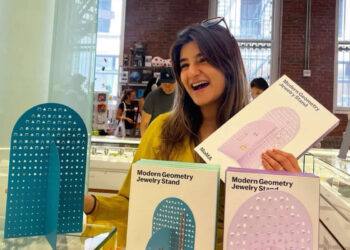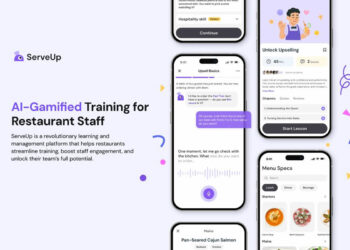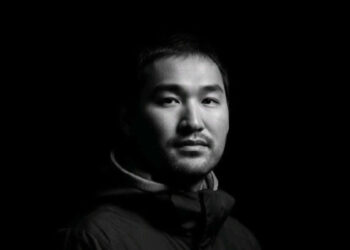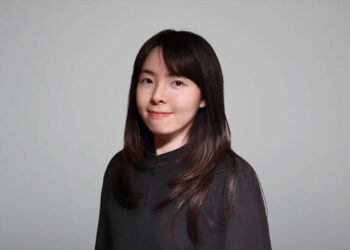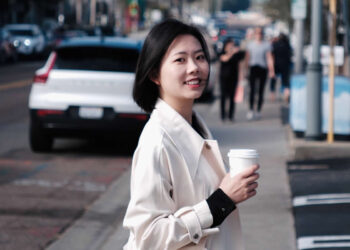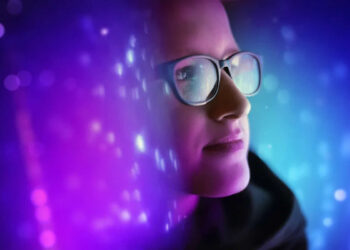As 2025 moves into its second half and most of this year’s major design competitions have drawn to a close, it’s an opportune moment to catch up with some of the standout winners who have defined the season. Among them is product designer Qiuyi Yang, whose work has captured international attention for integrating technological creativity with a strong sense of human connection. This year, her two projects – the emotional health VR experience Lullaland and the hospitality training platform ServeUp – collectively earned three Silver awards across top-tier competitions. Yang’s multisensory approach to easing anxiety and her inventive use of AI in staff training have resonated with juries from New York to Paris, marking her as one of 2025’s notable names in design.
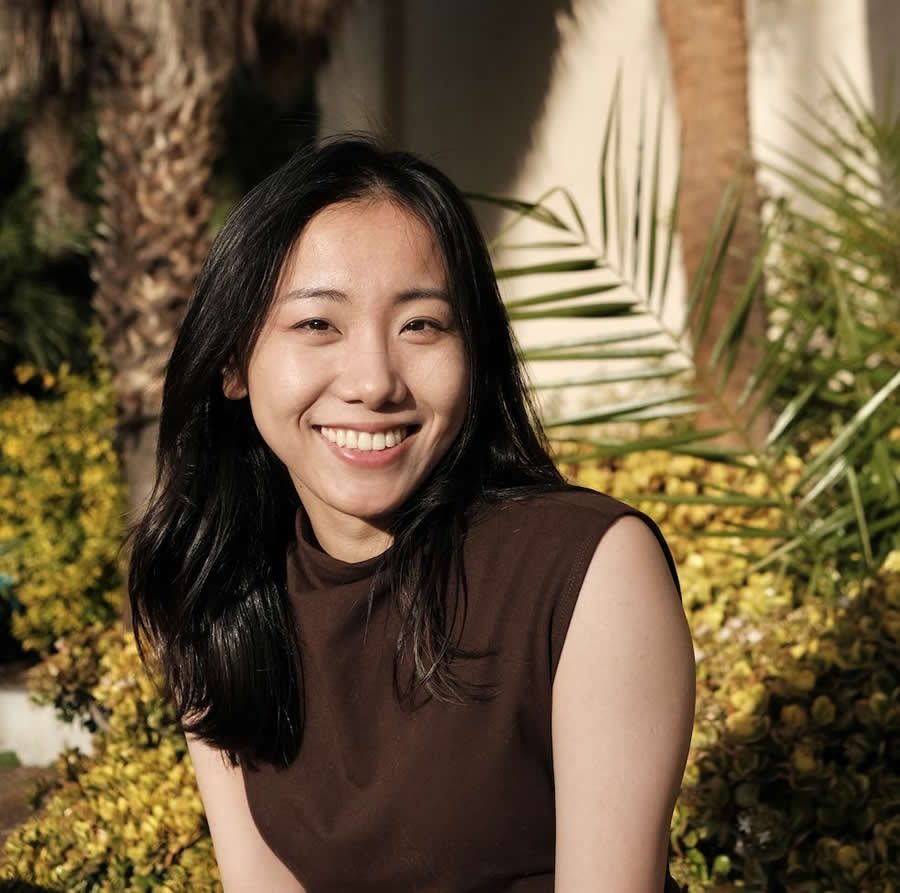
Multiple International Wins in Early 2025
In April, the prestigious MUSE Design Awards announced Lullaland as a Silver Winner in its conceptual design category, selected from a field of over 12,000 submissions worldwide. Not long after, Lullaland also clinched a Silver in the New York Product Design Awards’ social design category, underscoring its broad appeal. Meanwhile, Yang’s second project ServeUp, an AI-powered restaurant training platform, earned a Silver award at the French Design Awards.
“Winning one award was exciting enough, but seeing both projects recognized across different competitions felt unreal,” Yang says. “These projects were very personal explorations, so it’s encouraging that the ideas spoke to others as well.” The recognition of Lullaland and ServeUp in the same season is drawing industry attention not just to the projects’ creative merits, but to the themes behind them – empathetic, strategic, technology availability – that Yang has placed at the center of her design philosophy.
Lullaland: Designing Calm in High-Stress Spaces
The first of Yang’s award-winning projects, Lullaland, is described as “a multisensory virtual reality experience designed to alleviate stress and anxiety, particularly in high-stress environments such as hospital waiting rooms.” In essence, Lullaland combines an immersive VR game with a wearable wireless aroma diffuser to engage three senses at once – sight, sound, and smell. Users awaiting medical procedures can put on a VR headset and be transported to tranquil natural scenes, from gentle forests to soothing beaches, all while the wearable device releases therapeutic scents like lavender and coconut keyed to the experience. By maximizing sensory engagement, the experience helps distract users from anxiety that is often heightened by sterile, high-tension environments. The activity-based interaction further supports immersion, enabling users to fully engage and shift their focus away from the stress of waiting. Together, these elements aim to turn a tense waiting period into an opportunity for active mental relief.
The idea behind the project grew out of a clear user need. “Hospitals can be scary and sterile. We realized patients often have no control and little to distract them from their worries,” Yang explains. “One sense alone might not fully pull someone out of their anxiety, so we thought – why not engage all the senses we can? We used VR to take them somewhere comforting, and even added scent to make it feel real. It’s about giving people a few minutes of calm on their own terms.” This multisensory strategy proved compelling: at the MUSE Awards, judges praised Lullaland’s innovative use of immersive technology to address a healthcare pain point. By empowering users to manage anxiety through play and relaxation, Lullaland stood out as an example of tech for well-being – a design addressing emotional well-being in stressful spaces that can improve real-life healthcare experiences.
The result is both playful and purposeful. In Lullaland’s VR world, gentle natural imagery and friendly animal guides lead the user through breathing exercises and casual games, synchronized with soothing aromas released by the wearable diffuser. The hardware – a lightweight, palm-sized scent diffuser worn near the collar – holds pods of essential oils that are dispensed based on the virtual environment. For example, a lavender fragrance might waft out as the user wanders through a virtual meadow at dusk. This kind of detail, integrating design and technology to influence mood, is what made Lullaland a Silver winner and also a UX Design Awards nominee in the New Talent category. While still a prototype, Lullaland points toward a future where clinics and hospitals might offer patients an immersive refuge from anxiety rather than just an uncomfortable chair and a ticking clock. By maximizing sensory engagement, the experience helps distract users from anxiety that is often heightened by sterile, high-tension environments. The activity-based interaction further supports immersion, enabling users to fully engage and shift their focus away from the stress of waiting. Together, these elements aim to turn a tense waiting period into an opportunity for active mental relief.
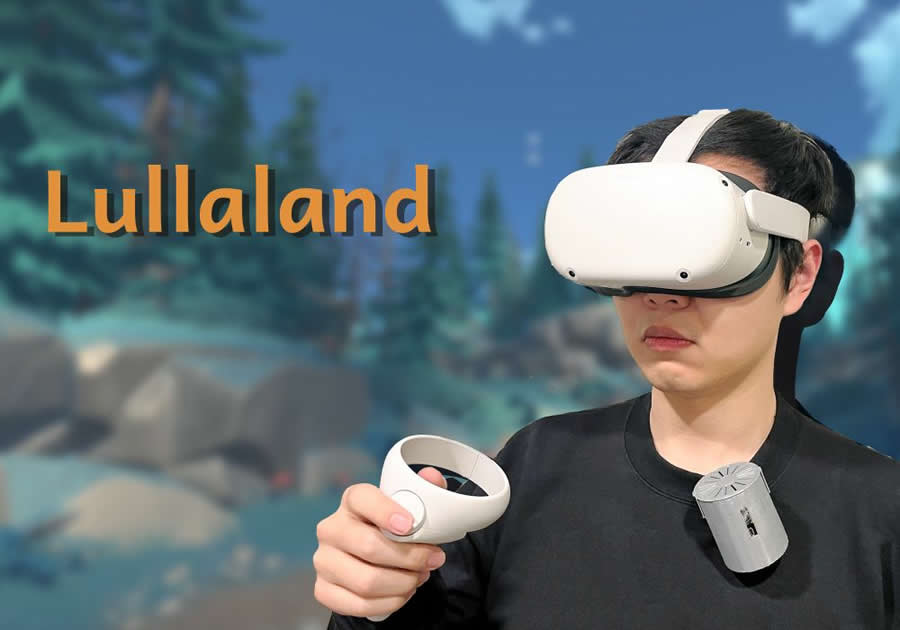
ServeUp: Gamified Learning for Hospitality
Yang’s second recognized project, ServeUp, tackles a very different context – the fast-paced world of restaurants – but it shares a similar spirit of human-centric problem solving. ServeUp is an AI-powered training platform designed to improve how restaurants train their staff, using conversational interfaces and gamified learning techniques. In many eateries, new hires still learn through dense manuals or shadowing more experienced staff. “When we looked into how restaurant teams were being trained, we noticed most businesses still relied on outdated methods like printed manuals or old training videos,” Yang says. “These approaches are not only time-consuming for managers, but they also deliver inconsistent results. Staff often feel unmotivated, and the learning doesn’t always stick.” ServeUp was designed with restaurants in mind — to create a faster, more consistent, and more engaging way to onboard and upskill staff. “We wanted to build something that saves restaurants time while helping employees actually absorb and apply what they learn — and ideally enjoy the process along the way.
At its core, ServeUp uses an AI-driven virtual coach to simulate real customer-service scenarios. Trainees can converse with a chatbot that plays the role of a customer or supervisor, practicing everything from greeting guests and taking orders to handling complaints. The platform presents these scenarios as a series of challenges or story-driven levels, rewarding users for correct responses and guiding them when they make mistakes. The experience is meant to feel less like a test and more like on-the-job practice, but in a safe space where errors are learning opportunities. Yang’s design also emphasizes user-centered design principle – for example, using friendly language and optional hints to create an intuitive, low-friction experience so that even staff with no prior tech or AI product experience can comfortably use it on a simple tablet or phone interface.
This innovative approach earned ServeUp a Silver award in the concept design category of the 2025 French Design Awards. Judges were impressed by how the platform applied advanced technology to a very practical workforce challenge. ServeUp stood out in a competition often dominated by futuristic product concepts and architectural visions, by focusing on the often overlooked realm of service industry training. “Not every innovation has to be rocket science – sometimes it’s about improving everyday things,” Yang remarks. “In hospitality, so much depends on personal touch. We thought, why not use AI to help teach that personal touch? ServeUp lets trainees learn by doing – you can make a mistake with a virtual customer and no real guest is upset, but you still learn how to fix it. It bridges the gap between classroom training and the real dining floor.” While still in concept stage, the recognition from the French awards suggests ServeUp’s idea has global resonance, especially as industries everywhere look to modernize workforce development through tech.
From Hangzhou to Seattle: A Journey in Design
Qiuyi Yang’s ability to devise solutions like Lullaland and ServeUp is rooted in a diverse education and an eagerness to explore new intersections of design and technology. Born and raised in China, Yang earned her Bachelor’s degree in Industrial Design from Zhejiang University, one of China’s top engineering universities. There she gained a foundation in human-centered design and tangible product creation, working on projects that ranged from consumer gadgets to interactive installations.
Yang was later accepted into the Global Innovation Exchange program – a cutting-edge Master’s in Technology Innovation jointly run by the University of Washington in Seattle and Tsinghua University in Beijing. Uprooting herself to Seattle in 2021, she dove into an interdisciplinary curriculum blending design, engineering, and entrepreneurship. There, her projects grew increasingly futuristic and purpose-driven. In one class she co-created a wearable device for caregivers that went on to become a World Finalist project at Microsoft’s Imagine Cup 2022. In another, she teamed up with classmates to explore AR/VR for mental health, which eventually evolved into Lullaland. Her graduate experience also included an industry collaboration with telecom company T-Mobile on an AR art exhibition concept, and research into how emerging tech like extended reality can serve social needs. These diverse experiments helped Yang form what she calls her “design methodology for landing new technologies in real life.” It’s an approach that looks for the practical, humane application of tech – exactly what both Lullaland and ServeUp embody.
In mid-2024, Yang took her talents to Meta (formerly Facebook), where she now works as a product designer on the Ads Manager Guidance team in Bellevue, Washington. The scale at Meta is vastly different, but her focus remains on using design to simplify technology. She has been creating new interface features that use AI to guide advertisers – essentially helping businesses optimize their ad campaigns through smart, contextual suggestions. The work might seem far removed from VR headsets and restaurant training games, but to Yang it’s part of the same bigger picture. “From industrial design to AR to AI in enterprise software, my path has always been about connecting people with technology in a meaningful way,” she says. “The tools change – a VR game, a chatbot, an algorithm – but the goal is the same: make the tech helpful, accessible, and maybe even a little bit inspiring and fun to use.” It’s this philosophy that links all her projects, big or small. And it hasn’t gone unnoticed: even before her recent wins, Yang picked up an Honorable Mention in the global Design Intelligence Award (DIA) competition in 2020 for an AI image generation based T-shirt printing and vending machine concept, signaling her knack for forward-thinking design early on.
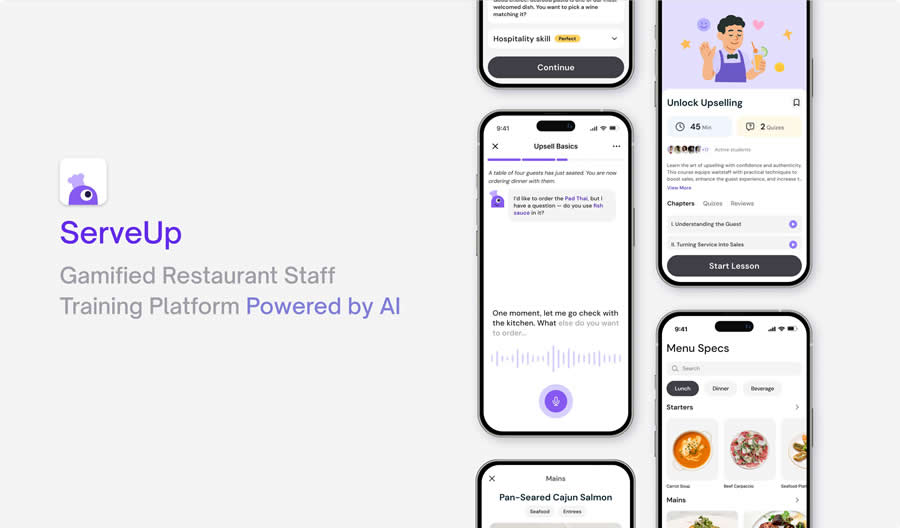
Designing with Purpose, Looking Ahead
With three new awards on her shelf, Qiuyi Yang is reflective about what the recognition means – and cautious not to let it define her next steps. She continues in her role at Meta, building products that quietly reach millions of users, and also mentors students in the UW/Tsinghua design innovation program she once graduated from. These day-to-day responsibilities keep her grounded. Yet, the excitement of Lullaland and ServeUp’s success has reinforced Yang’s desire to pursue design work that has a social impact. “The awards are a wonderful honor, but what fuels me is knowing these projects touched on issues I care about,” she says.
As for what comes next, Yang hints that she is interested in the intersections of AI, immersive media, and public well-being. She believes these fields will continue to converge in coming years, opening up new possibilities for designers. In her spare time, she’s experimenting with concepts like using machine learning and AI to improve efficiency in ads industry, and conversational AI to support mental health. Given her track record, it wouldn’t be surprising to see some of these ideas turn into award-winning projects in the future as well.
Yang’s rapid rise in 2025 is a heartening example of design innovation driven by empathy. In an industry often enamored with tech for tech’s sake, her work stands out for focusing on the human experience behind the technology. “I don’t think technology is the star of the show,” Yang reflects. “It’s just the medium. What matters is how it helps someone in the moment they need it.” This people-first ethos, combined with her cross-disciplinary skills, has clearly struck a chord. As the 2025 award season continues to unfold, Qiuyi Yang’s achievements offer a hopeful reminder that some of the most celebrated designs grow from a simple question – how can we make life a little better – and a determined designer’s drive to answer it.
Article by: Emilie Chung


